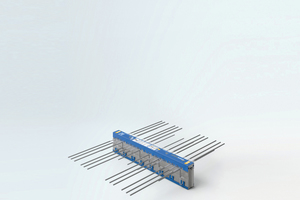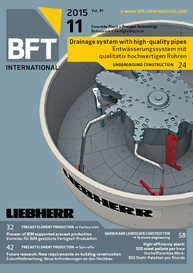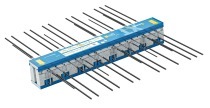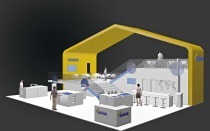Optimized loading step concept for Isokorb
Schöck Isokorb offers a great variety of solution possibilities for thermal separation of cantilevered structural components. Customer surveys, according to the manufacturer, show a high demand for specific loading steps for this component. The Baden-Baden-based company has now revised its 80-mm type for more efficient utilization and, at the same time, improved reliable installation at increased stability.
In selecting the right Isokorb type with the appropriate load capacity, the size of the balcony and the thickness of the slab are crucial aspects to consider. Where previously one type...







